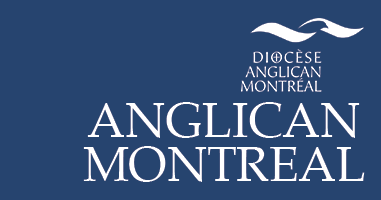The Rev. Dr. Heather McCance began work as the new Director of Pastoral Studies at Montreal Diocesan Theological College in August. Heather is originally from Ontario and served in parish ministry in the Diocese of Toronto for twenty years. For the last four years, she has been working in the Diocese of Rupert’s Land as the Ministry Developer, responsible for clergy development, the ordination process, and a host of other responsibilities, including re-thinking formation for ministry in a changing church.
Dr. McCance has degrees from the University of Waterloo, Trinity College at the University of Toronto, and Tyndale University. Her Doctor of Ministry degree at Tyndale focused on fieldwork supervision and mentoring relationships for leadership formation in the church.
What drew you to Dio and to this position?
I’ve spent the last four years working in ministry development, helping people find courses and training opportunities as they deepen their theological understanding and skills for ministry. At Dio, I will have the blessing of developing and leading those courses and training opportunities more directly, with the opportunity to be more closely involved in vocational formation with students.
Dio works beyond a traditional Master of Divinity program in many ways (although that program, with its partnerships with McGill’s School of Religious Studies, the United Theological College and the Presbyterian Theological College, is also really innovative). I particularly appreciate the ways Dio reaches out to the wider church through the Reading and Tutorial program and online non-credit courses (particularly for lay disciples), and I’m really looking forward to being part of these.
The church is in the midst of significant change and transition. How do you feel about the position of the church in the world? Where do you see the church heading?
The Church, as always, is called to witness to the in-breaking of the Kingdom of God through Jesus Christ, in the time and place in which God has placed us. The past seventeen months of a global pandemic has revealed that we are capable of change, and the places God is inviting us to witness by word and action: the urgent call to care for God’s creation, the imperative to act for justice among all human persons, bringing reconciliation and healing where there is brokenness, speaking to Christ’s love.
Discipleship and the work of the Church has always been contextual, and that will continue to be so. Thus what these aspects of mission look like will continue to evolve in different places and times; we simply need to resist the temptation to focus on institutional survival and trust that God will shape us and our life together in ways that bring God’s mission to the fore.
Why is theological education important for the church?
All Christians need to be equipped for the work of ministry. Part of that equipping is the shaping of our hearts and minds and imaginations so that we are so deeply theological in all that we do that we are not bound to the ways of this world but able to export the world as God sees it and dreams it. Thus those who are theologically educated will be increasingly called upon to work to equip others for that work, as well.
What lessons do you take from your time in parish ministry for your work in theological education?
The vast majority of those undertaking theological education are members and leaders in parishes. My ability to ground my teaching in lived parish experience is really helpful for learners. When sharing what might seem merely theoretical, I can then share a story about a time in my ministry when that theory was illustrated. And conversely, my own theological inquiries are deeply informed by my years in parish ministry, in the questions and joys and sorrows that people bring to their church community.
You’ve spent a lot of time in school. How has this further study enriched your ministry? In particular, how is your Doctor of Ministry degree helpful in thinking about the life of the church today?
I love learning, and always have. All of my studies, whether more ‘theological’ or ‘practical’ have deepened my own faith, informed my preaching, given me skills for leadership, and allowed me to pass on my learnings to others. Completing a D.Min. in Ministry Leadership was a wonderful opportunity to study leadership in all aspects of society and to understand the ways Christian leaders can strengthen their God-given gifts in leading others to live into God’s mission for the world.


